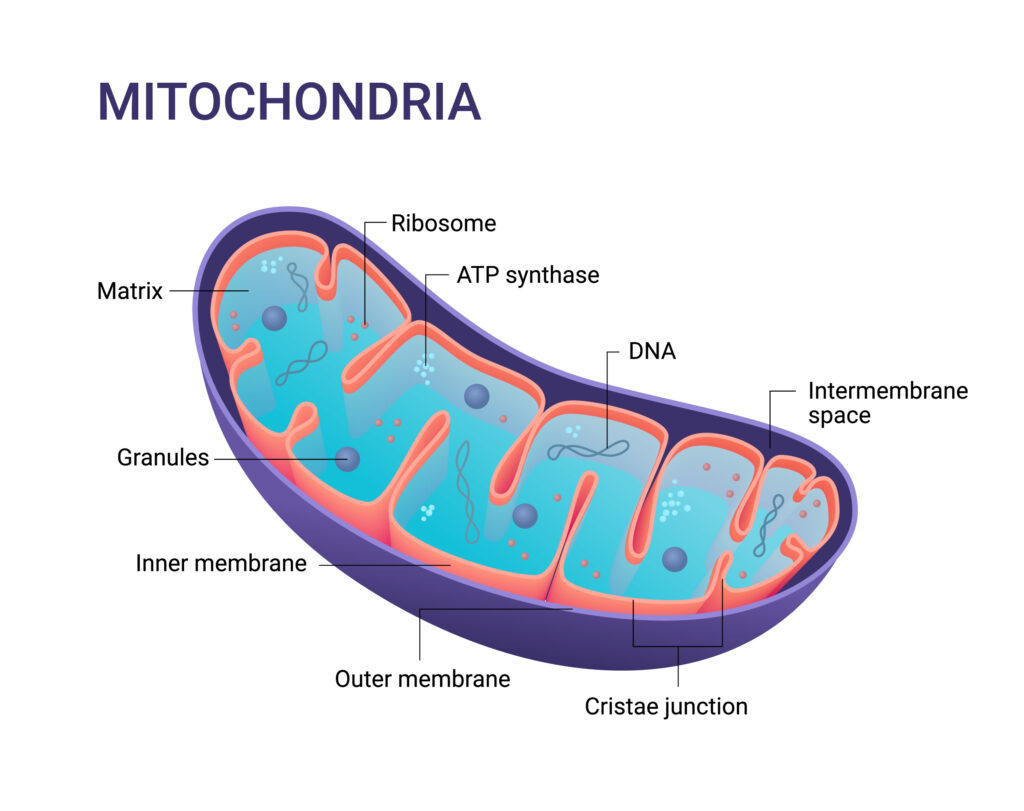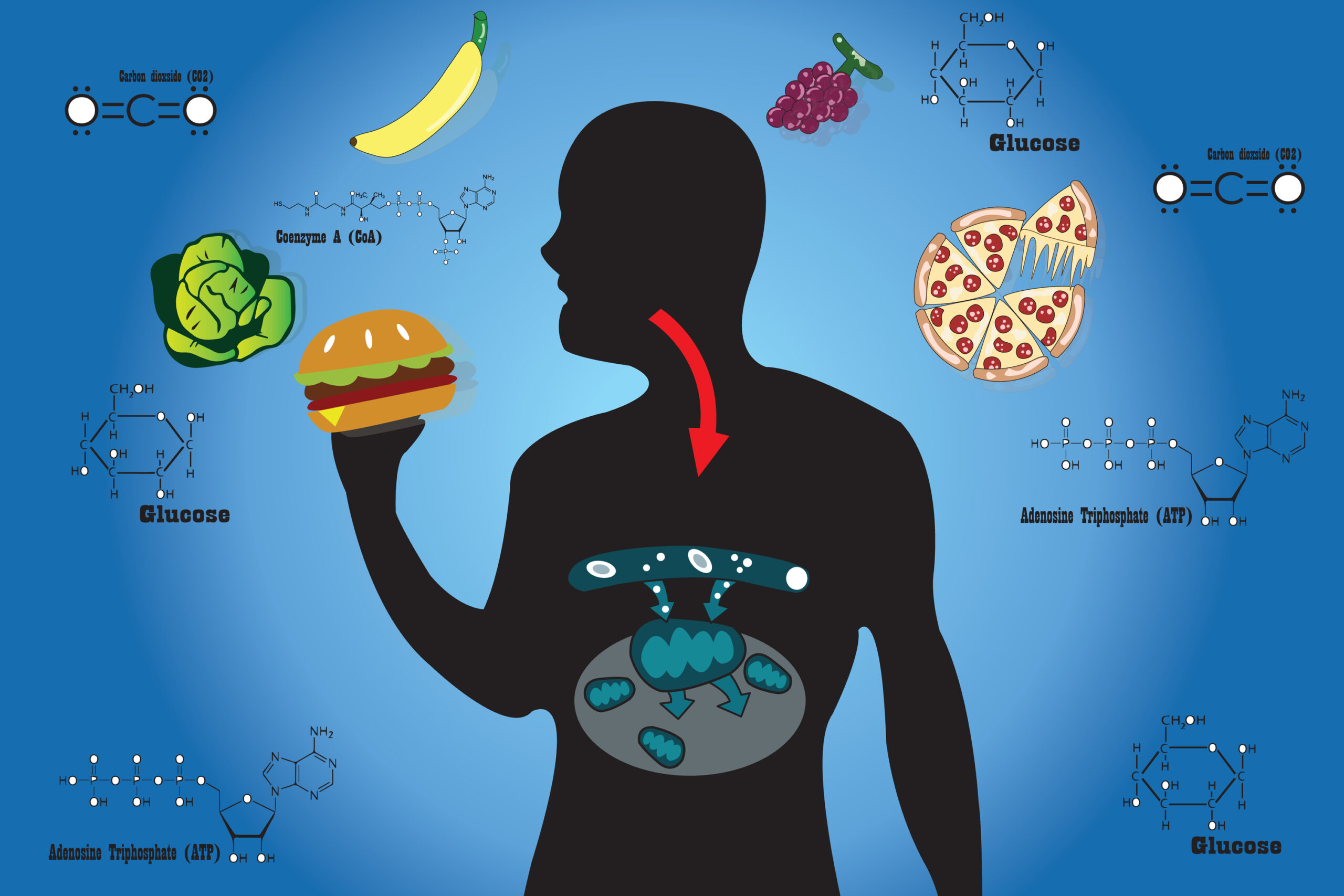Mitochondria, the “powerhouses of the cell,” are organelles found in the cells of every complex organism. They help turn carbohydrates, fats, and proteins that we eat into chemical energy forms that the body can use to carry on living. The mitochondria turn glucose and oxygen into a high-energy molecule called ATP. This process is called cellular respiration. Adenosine triphosphate (ATP) is the essential “fuel” that drives all of the body’s functions.

The number of mitochondria per cell varies widely; for example, in humans, red blood cells do not contain any mitochondria, whereas liver cells and muscle cells may contain hundreds or even thousands. Muscle cells need a lot of energy, so they have loads of mitochondria. When muscles are challenged with exercise, more mitochondria are created. Neurons (cells that transmit nerve impulses) do not need as many. If a cell feels it is not getting enough energy to survive, more mitochondria can be produced. Sometimes mitochondria can grow larger or combine with other mitochondria. It all depends on the needs of the cell.
Nevertheless, there is more to mitochondria than energy production.
In addition to producing energy, mitochondria store calcium for cell signalling activities, generate heat, break down waste products, so they are less harmful, recycle some of those waste products to save energy, and signal between cells and cell death, otherwise known as apoptosis. Apoptosis is essential for the processes of growth and development. Sometimes cells do not die when they should and start to grow uncontrollably. This is how a tumour starts to grow, so it is not a surprise that mitochondria play an essential part in cancer and are seen as targets for anti-cancer drugs.
During a heart attack or a stroke, the blood stops delivering oxygen to the heart and brain. These two organs do a lot of work and need a lot of energy. Without oxygen, the mitochondria stop working, and the cells in the brain or heart are damaged or even die. Physical exercise is the best way to increase your oxygen intake, critical for mitochondria’s Krebs cycle. As your body uses more energy, it will force itself to produce more mitochondria to keep up with the demand
Symptoms of a mitochondrial malfunction:
- Loss of muscle coordination and weakness
- Problems with vision or hearing
- Learning disabilities
- Heart, liver, or kidney disease
- Neurological problems, including dementia
- Parkinson’s disease
- Alzheimer’s disease
- Bipolar disorder
- Schizophrenia
- Chronic fatigue syndrome
- Diabetes
- Autism
- Neuropsychiatric symptoms (ADHD, anxiety, OCD, depression)
- Seizures
- Headaches
- Gastrointestinal symptoms
- Asthma
- And others
Triggers that can lead to mitochondrial dysfunction:
- Diet lacking essential vitamins and minerals (or impaired absorption which leads to deficiencies)
- Lack of exercise
- Certain chemicals, heavy metals, and drugs
- Certain bacteria and viruses
- Stress
- Gene mutation
How to boost your mitochondria:
- Exercise regularly ( the key here is not endless hours of exercising, but consistency).
- Improve hydration: Dehydration negatively affects mitochondrial function. Proper hydration is not simply infusing your body with water. More specifically, it is about getting the water inside your cells. In a dehydrated state, you accumulate toxins due to a lack of electrical energy flow.
- Avoid mitochondrial toxins (valproic acid, certain cholesterol-lowering medications, aminoglycoside antibiotics, acetaminophen, metformin, beta-blockers, etc.)
- Avoid physiologic stressors when possible, such as illness, dehydration, fever, surgery, anesthesia, prolonged fasting, or starvation.
- Provide supportive care during physiologic stress conditions (e.g., hydration, nutrition, L-carnitine, CoQ10, Vitamin C & E, L-arginine).
- Spend time outdoors: We need the full solar spectrum’s light because of the red light, which powers the mitochondria. What you should do each morning is go outside and let the sunlight pass through your body.
